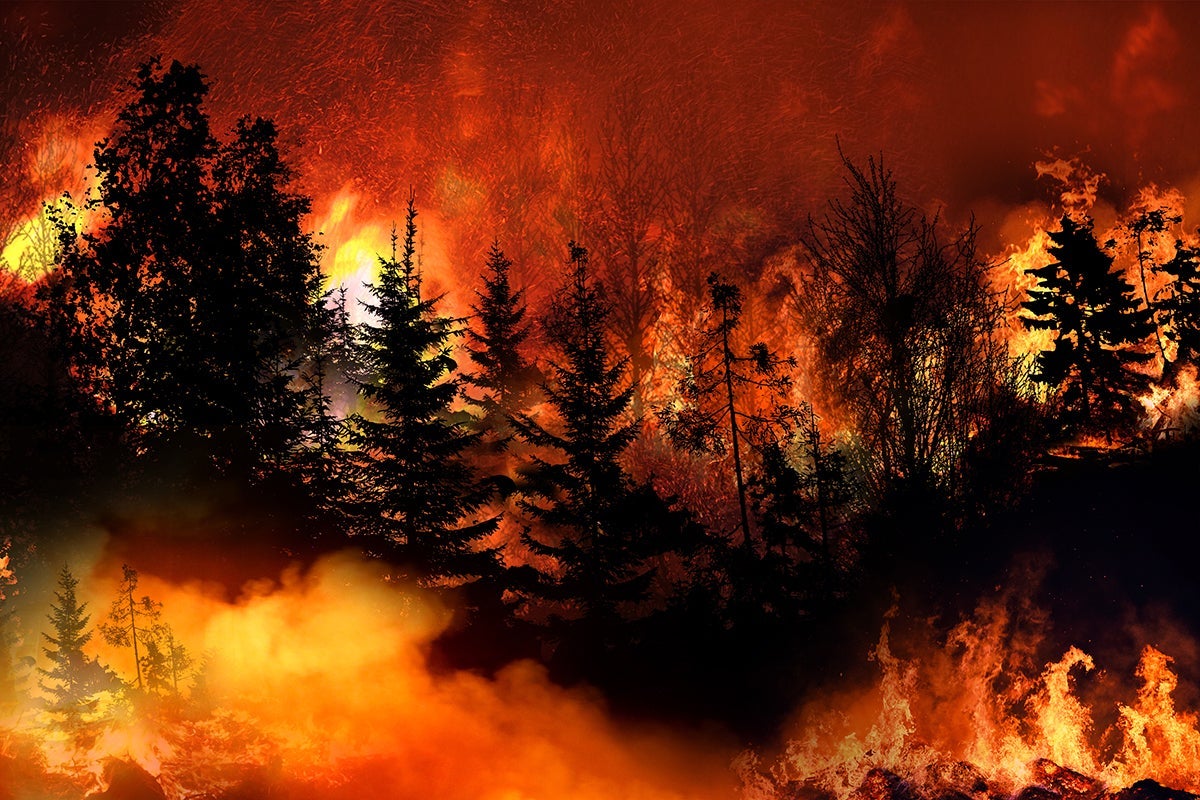Wildfire risk requires proactive strategies, says U.S. commission

Federal commission issues report with recommendations to reduce risk of wildfires
October 2, 2023 – Amid more frequent, intense, destructive, and deadly wildfires in the U.S., a federally appointed commission recommends developing more proactive strategies that make communities and landscapes more resilient and adaptable to the threat.
The 50-member commission, created through the 2021 infrastructure law, was charged with making recommendations to Congress on federal polices to mitigate, suppress, and manage wildfires in the U.S. Kari Nadeau, chair of the Department of Environmental Health and John Rock Professor of Climate and Population Studies at Harvard T.H. Chan School of Public Health, is a commission member.
In a report issued September 27, the commission catalogued the devastating impacts of recent wildfires, including loss of life and the destruction of entire neighborhoods and communities. The report cited the smoky skies that blanketed communities in the eastern U.S. in the summer of 2023 and the wildfire in Hawaii that became the nation’s deadliest in more than a century. The report also noted the destructive effects of wildfires on landscapes and on services such as drinking water systems. Costs of wildfires nationwide are estimated to be in the tens to hundreds of billions per year, according to the report.
In its recommendations, the report called for greater coordination, integration, and simplification within the wildfire system, and said that federal agencies must be joined by the whole of society—tribal, state, and local governments; residents; nongovernmental organizations; private industry; the research community; and others—in responding. The report also called for supporting and expanding the wildfire fighting workforce.
Crucially, the U.S. needs to be more proactive in preparing for wildfire impacts, such as making use of “beneficial fire,” including prescribed and cultural burning in wildlands. The authors wrote, “Policy change is needed to enable a new relationship with fire, one in which fire is no longer an existential risk to communities and landscapes, but instead an integral and beneficial component of our human and natural systems.”
Nadeau said that the report “represents an important roadmap toward evidence-based wildfire policy that protects people, their health, firefighters, homes, land, forests, and wildlife. As wildfires and wildfire smoke and the damage they cause remain a growing threat, these recommendations will help officials and communities work collaboratively to reduce risks.”
Read the report: On Fire: The Report of the Wildland Fire Mitigation and Management Commission
Read a U.S. Department of Agriculture release about the report: Biden-Harris Administration’s Wildland Fire Mitigation and Management Commission Releases Report Outlining Comprehensive Recommendations to Change the Nation’s Relationship with Wildfire


